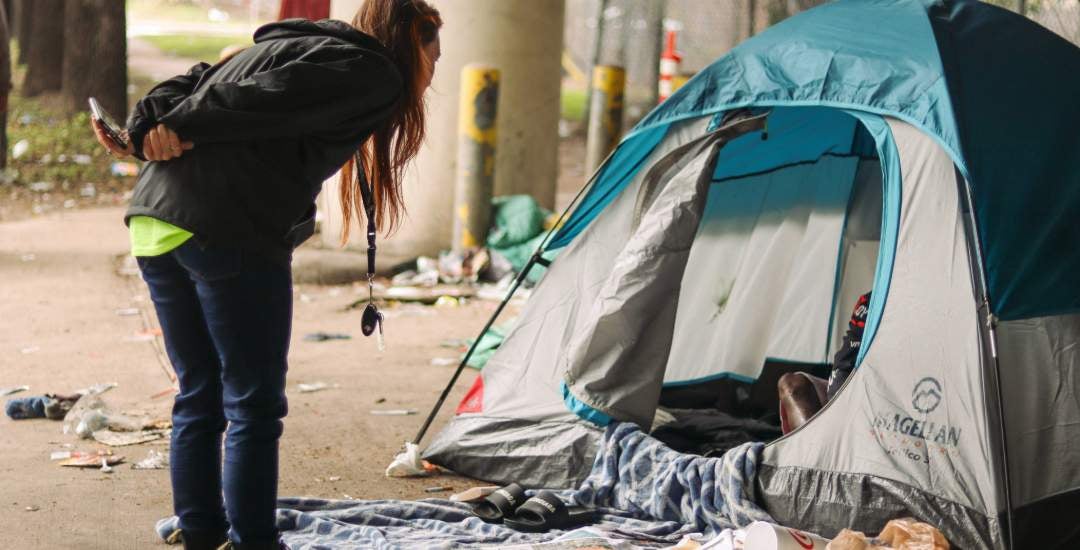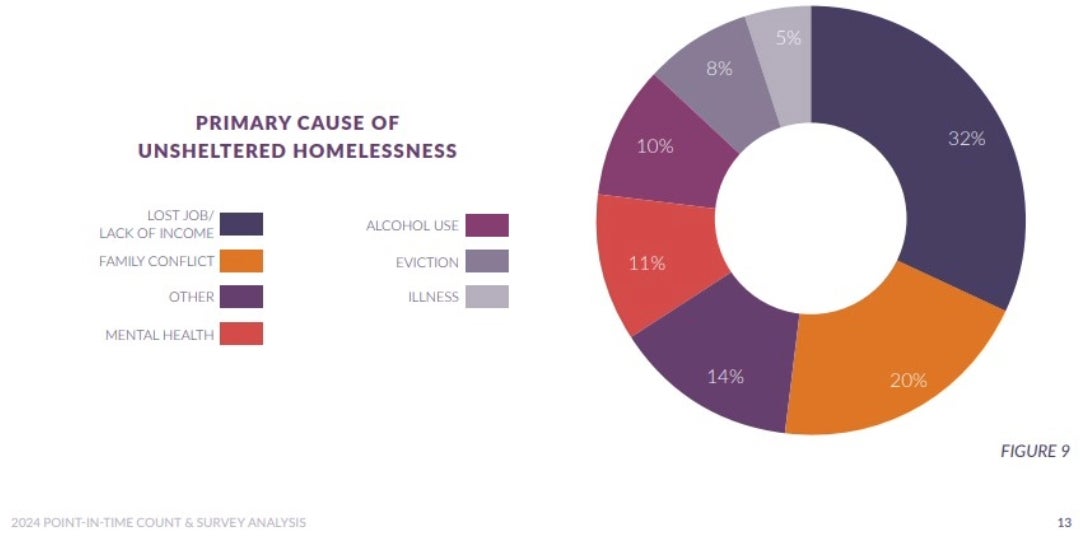In the 2024 Kinder Houston Area Survey, 22% of respondents said the cost of housing and homelessness was the region’s second-biggest problem. Twenty-one percent said they believe it will be the No. 1 problem in 20 years.
The Coalition for the Homeless of Houston/Harris County’s 2024 Point-in-Time Count & Survey of People Experiencing Homelessness, released last week, demonstrated that these concerns are warranted. The survey included homeless populations in Harris, Fort Bend and Montgomery counties.
Homelessness in the area has decreased by more than 60% since 2011, and 17% since 2020, according to the coalition. But the Point-in-Time Count & Survey discovered a combined 3,280 people experiencing homelessness on the night of Jan. 22, 2024, in Harris, Fort Bend and Montgomery counties, a 0.3% increase from the 2023 count.
Federal funds issued during the COVID-19 pandemic are running out, and the coalition estimated that at least $50 million per year, not including the annual disbursement from the U.S. Department of Housing and Urban Development (HUD), will be necessary to keep the area’s homeless numbers where they are. Without additional funding, the coalition predicted that approximately 5,200 people who formerly experienced homelessness — an increase of nearly 60% — could become homeless again by the end of 2026.
“The reason why we’ve been able to keep our numbers down, especially our in-shelter numbers over the last few years of the pandemic, is because of our focus on housing,” said Ana Rausch, the coalition’s vice president of program operations. “Houston has traditionally been a city that focused the bulk of its resources on housing. I’m concerned about what’s going to happen when we don’t have those resources in the coming years.”
Unsheltered homelessness, which accounts for individuals living in an abandoned or dilapidated building, outdoors or in a vehicle, has decreased by 33% in the area in the last four years. Individuals identifying as Black or African American made up 62% of the homeless population, and 78% of those unsheltered were men.
The primary cause of unsheltered homelessness is a lost job or lack of income. According to the Kinder Institute’s 2024 State of Housing report, there is a shortage of low-rent housing available. Numerous programs have used such properties to house people who previously experienced homelessness.
As a revenue-capped city, Houston receives little in the way of local resources when it comes to homelessness. The majority of funding comes from the continuum of care process, directly from HUD.
Rausch said while the city and Harris County receive some entitlement money, there is not nearly enough to sustain the level of resources that the coalition currently provides, let alone expand services to new individuals.
“I’m hoping that our local leaders are really hearing this message,” Rausch said. “It’s going to be the citizens of the community that are going to go to them with concerns if there is all of a sudden an increase the number of people experiencing homelessness in our region.”
Rausch said that local tax revenue, bonds or philanthropy could all play a part in providing the additional $50 million per year necessary to support the coalition’s programs, and that going forward it will be imperative to not rely on disaster funding.
“The pandemic was just another natural disaster,” Rausch said. “We used those funds like we’re used to using them, like after Harvey, after Ike and after all the flooding events that we’ve had here. Eventually, those funds are not going to be available, so then what? We need to put dollars into that epidemic to continue to serve it, and not just wait until something drastic happens.”
Houston’s response to homelessness has been recognized nationally in recent years, including by CBS News and The New York Times. Documentarians Tim Hashko and Don Sawyer of A Bigger Vision Films are currently screening their film “Beyond the Bridge: A Solution to Homelessness,” which praises the city’s approach, across the country.
Despite the region’s success in this area, officials acknowledged that many challenges remain if Houston is to solve homelessness.
“This is a moment for us to reflect on the thousands of Houstonians and those in Harris County still without homes,” said Tory Gunsolley, chief of staff for the Harris County Community Services Department. “We cannot rest and pat ourselves on the back for past accomplishments and declare the job finished while ignoring all the work that remains. The success that we’ve enjoyed is precarious. We are on a precipice that could fall and fade away and all be for naught.
“Our system was able to use millions of dollars in one-time funding. It has to be replaced for us to be able continue the progress.”




